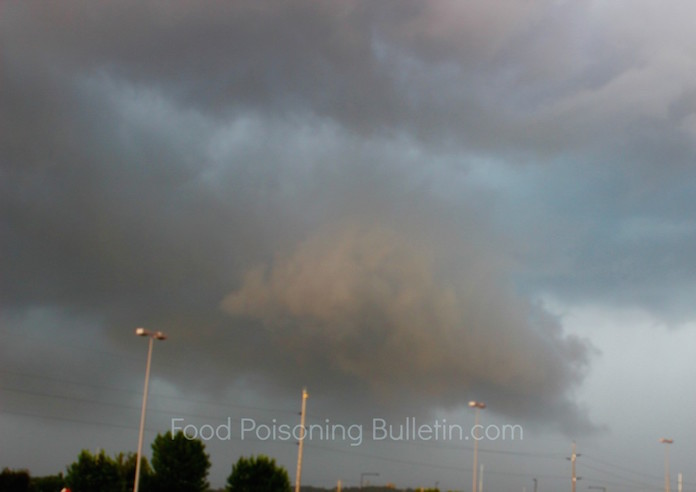If you are in the path of Hurricane Irma, which is now a Category 5 storm, the FDA and the CDC have some advice about protecting yourself and keeping your food and water safe. If you aren’t going to evacuate, make sure you follow these instructions.

First, make sure that you have a plan. Make a hurricane plan for your household and follow it to the letter.
Then, put thermometers in your freezer and refrigerator. If the power is off for hours or days, the thermometer will let you know whether or not the food in that appliance is safe. Keep lots of bottled water on hand. You don’t need bottled water for washing or flushing the toilet; line your bathtub with plastic and fill it up to use when you need it.
Keep containers of ice on hand to keep food cold, or to melt if the water supply becomes contaminated. And make sure you have coolers, frozen gel packs, and dry ice. Refrigerated food must be kept at or below 40°F and frozen food at or below 0°F if the power is out for more than 4 hours.
Have lots of nonperishable food available. Store it high on shelves in case of a flood. And have a manual can opener ready.
Make sure that you have bleach on hand for disinfecting canned foods and any surfaces that come into contact with flood water. That water contains many pathogens and hazardous chemicals.
During a storm, don’t eat or drink anything that has touched flood water, including food packed in non-metal containers. Before using food in undamaged metal cans that have been in flood water, remove the labels, which can harbor pathogens, and sanitize the cans.
To sanitize, mix 1 tablespoon liquid chlorine household bleach with 1 gallon of water. Soak the item for 15 minutes and let air dry.
The CDC also has advice. Make sure you have clean containers for water. You should have at least 5 gallons of water per person, which should last about 3 to 5 days; store more if you think you need it. Make sure you have baby food on hand, and store it on a high shelf.
In addition, you should have a first aid kit, a fire extinguisher, a battery-powered radio, flashlights, extra batteries, and sleeping bags or extra blankets. Hand sanitizers and wet cleaning cloths are also necessities.
Finally, follow all government recommendations, including evacuation orders if you can. Stay safe.




